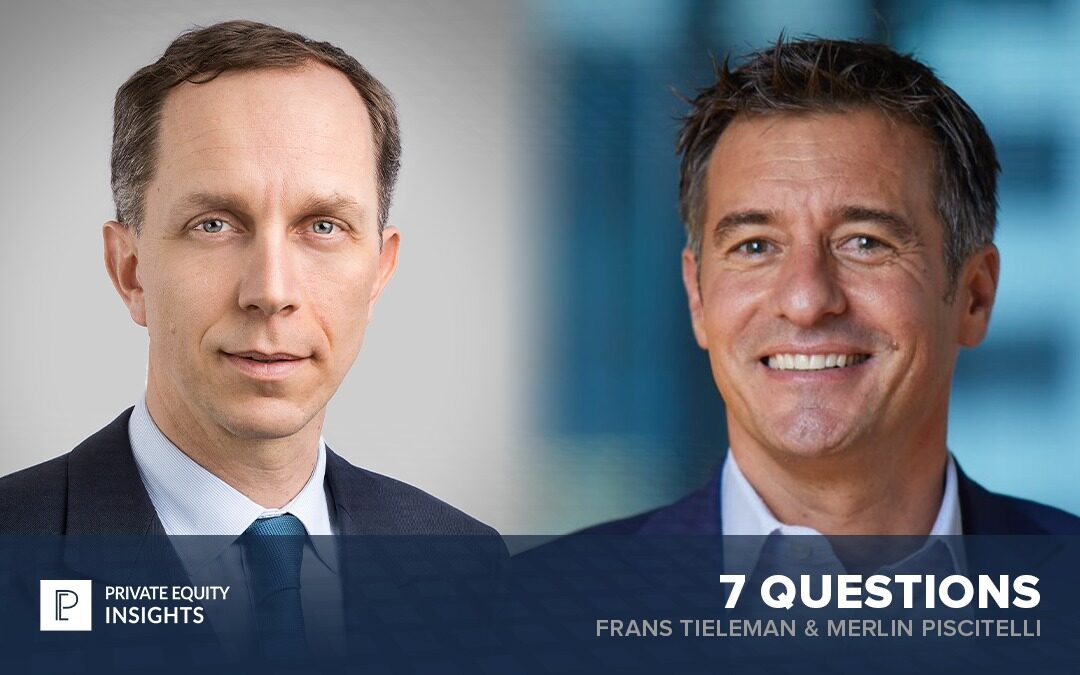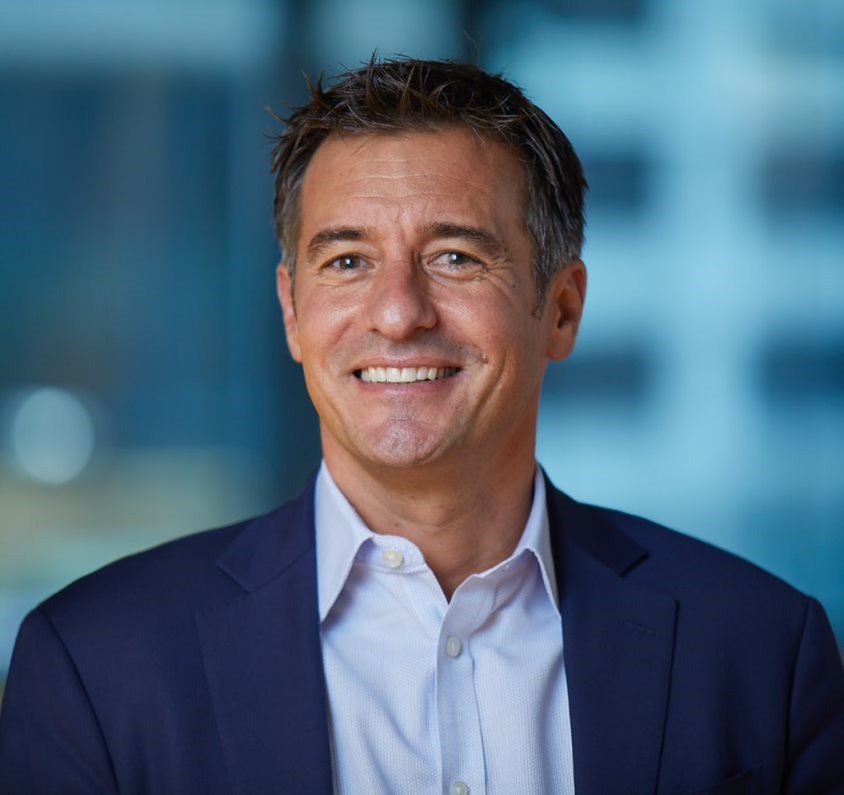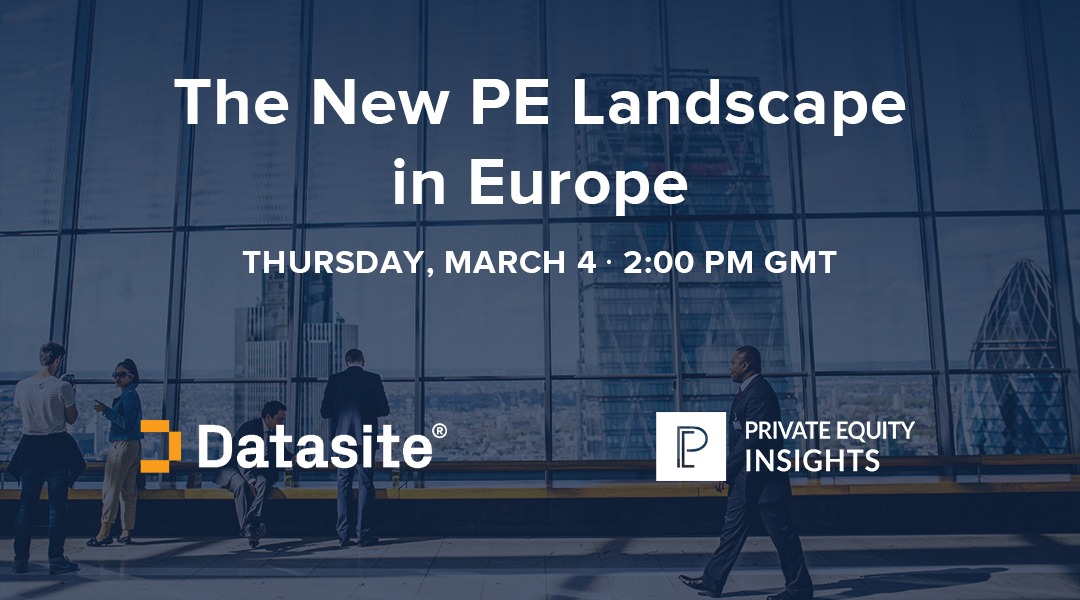Q1
Frans Tieleman:
Well if I had to choose one thing only I would definitely say resilience. Private companies and the PE industry have been weathering the storm well up to now, better even maybe than we could have hoped for.
Back in March 2020 we were battening down the hatches and preparing for a remake of the Global Financial Crisis, or worse. It turns out that our portfolio has done well overall, with a few travel related companies suffering and many tech companies benefitting from a very strong acceleration.
Merlin Piscitelli:
As Frans also stated, private equity demonstrated a profound resilience last year. When the pandemic first hit, global deal activity on our platform, which facilitates about 10,000 deals a year, fell off.
However, by the end of June, global activity on our platform started to come back, especially from strategic buyers and a resurgence from the middle market, including PE who had adapted and factored pandemic-related risks into their assessments to begin operating in the new normal.
Activity continued to rise in the second half of the year as the investment landscape continued to improve. In fact, since August, European activity on our platform has increased each month. In December and January, activity was up at least 15% YOY. This activity included fundraising as well as PE looking for opportunistic investments. And, because we see deals right at their inception, versus announcement, we see this as a good indicator of what’s ahead.
Q2
Frans Tieleman:
Because the sanitary crisis changed our day to day lives, I think Tech and Healthcare are very hot, in sync with what we experience today. Healthcare and Tech are two core sectors for us and have provided both good dealflow, strong NAV appreciation, and interesting exits. Consumer and services will provide interesting opportunities as well I reckon, as our lifestyles have changed, which will favour some more modern business models over others which may become outdated.
More generally, I believe that the role of private equity is to accelerate change in portfolio companies, and that our portfolios can be net beneficiaries as this change happens, as once dominant players become outdated and new business models grow.
Merlin Piscitelli:
I agree, PE fund managers are also searching for exciting investments in sectors that have been less affected by the pandemic, such as healthcare and IT.
Additionally, while dealmakers remain uncertain on the exact timing of a turnaround, they are still active in pursuing ways to deliver investor returns by opportunistically exiting. Now a popular vehicle in the US, special purpose acquisition companies (SPACs) haven’t quite made their way to EMEA, but regulators and exchanges are racing to figure out rules for SPACs and how to make them a feasible exit option. Once there’s more clarity there, we could see an acceleration in the pace of exits.
Q3
Merlin Piscitelli:
Yes. Many organizations benefited from government stimulus programs or were able to fend off creditors and the increased debt they’d taken on to survive last year’s economic downturn.
As these programs and strategies end, we’re likely to see some fall out. In fact, according to one of our recent surveys, despite readily available vaccines and capital, most M&A professionals expect to see more restructurings – ahead of other transactions, such as capital raises, acquisitions, divestitures, and special purpose acquisition companies – this year.
For PE, this may mean putting its significant dry power to work to raise funds for distressed assets, which would be otherwise healthy in a normal economic environment. The challenge will be predicting the true value of these assets and identifying where long-term growth opportunities lie.
Frans Tieleman:
Well, I would say that 2021 brought its lot of challenges indeed. Off the top of my head I would mention extremely low rates, limitations on travel, changes in politics and severe stress in some sectors. Low rates mean that it is tough to value assets and that their prices increase. Limitations on travel are a challenge to due diligence. Political upheaval remains a possibility in troubled times and we should not discount it. And finally, travel was benefitting from secular growth, and the form of its revival in the next few years remains open to debate.
Q4
Merlin Piscitelli:
While there are several regulatory factors to consider, Brexit is likely the most concerning for PE and their portfolio companies. Given the uncertainty last year, cross-border investments slowed. An agreement is now in place, but there are still questions around the future value of these investments. This year, there will be closer scrutiny of the rules, and evaluation of portfolio companies’ operations to see where there is room to optimize.
Frans Tieleman:
I think Brexit may to some extent impact the central role London plays in European PE. As for retail PE, it will continue to emerge as regular citizens will ask for more access to private markets. Overall, we should expect more regulation of PE as it now is an important provider of returns to pension plans and insurance companies that represent the life savings of large sections of the voting population.
Q5
Frans Tieleman:
With the ban on travels in 2020, we had to adapt to online fundraising and I think this is here to stay, including potentially for new relationships. This has shown us we could perform despite traveling less and thus limit our environmental footprint, which is crucial for Eurazeo.
Merlin Piscitelli:
I agree. PE professionals, now more than ever, are leaning into new tactics and technologies, including the use of artificial intelligence, to deliver investor returns. PE firms need to continue using solutions that can support workflow and due diligence and integrate AI and machine learning for team collaboration. AI is expected to speed up the due diligence process, which most dealmakers see as the most important success factor, yet also the most time-consuming phase, of the M&A process.
As it relates to fundraising, tools such as Datasite Outreach™, can help dealmakers track which potential investors they’ve reached out to, the marketing documents they’ve sent to those investors, and the reasons they’ve declined or accepted, accelerating engagement. This in turn can provide better transparency to relevant stakeholders and advance more quickly the fundraising process overall.
Q6
Frans Tieleman:
According to me, an increased use of data is a must as personal interactions are obviously more limited.
More broadly, our digital team has taken the lead in managing important sections of the due diligence process, including reputation analysis, environmental impact assessment and tech evaluation. This is unaffected and potentially enhanced in a digital environment.
Merlin Piscitelli:
Conducting due diligence in a remote or virtual environment can be challenging, but it’s also led to some creative ways to use technology. For example, travel restrictions made in person meetings and on-site visits harder to complete, however, dealmakers adapted, using video conferencing to replace face to face meetings and leveraging drones to inspect facilities.
Additionally, the pandemic has made clear the need for tools to help manage the M&A process effectively and efficiently. For example, one of the most challenging parts of the M&A process is organizing and preparing the files needed for review by potential investors or purchasers. AI and machine learning are streamlining this process, making it possible to upload thousands of files while categorizing and placing them into folders in a matter of minutes, not weeks. This type of automation, which is included in Datasite Prepare, saves dealmakers valuable time which can be better spent on higher value add activities.
Q7
Merlin Piscitelli:
Favorable interest rates, access to capital and a safe COVID-19 vaccine are all combining to create improved investment conditions. We expect that to continue and that PE could have a very strong year, especially in the second half when there is likely to be greater clarity over exit timelines for their most strategic investments.
Additionally, with Brexit in the past, plenty of dry powder still available, and new tools and best practices in place, European PE is set to advance.
Frans Tieleman:
I am not sure those are daring predictions! The PE industry is growing and maturing, as the asset management industry has decades ago. I believe that will lead to bifurcation between large managers and smaller, more differentiated players, and it may become harder to be a mid-size manager.
More money should also lead to more transparency and regulation. PE needs to be accountable for its business practices and how it cares for society and the environment. Eurazeo has been listed for decades, has been a frontrunning proponent of UNPRI and has recently committed to become carbon neutral: we feel that we are well prepared for the future.
Datasite & PE-Insights Webinar, March 4
Looking into 2021, as private equity deal activity in Europe is expected to set a new high, with record dry powder, tepid inflation and low interest rates driving activity, this webinar, in partnership with Datasite, will dive into what is in store for European PE.
While a lot could be addressed, the coming webinar will focus on some of the biggest potential risks, challenges, and then also opportunities, especially around technology, including market trends, exit strategy and options, and in general technology in PE.
Sign up to watch live or on-demand as we bring in top partners from European PE.

Frans Tieleman, Eurazeo | Merlin Piscitelli, Datasite
Managing Partner, Eurazeo | Chief Revenue Officer, Datasite
Private Equity Insights is happy to present this teaser for the exclusive webinar on March 4th on ‘The New PE Landscape in Europe’. Below, we’re having a chat with Frans Tieleman, Managing Partner at Eurazeo, and Merlin Piscitelli, EMEA Chief Revenue Officer for Datasite.
We interviewed them around some of their predictions, and already, we cannot wait to dive further into the topic on the actual webinar, adding leading figures from Cinven and Altor Equity Partners.
On the webinar, we will dive into some of the biggest potential risks, challenges, and then also opportunities, especially around technology, including market trends, exit strategy and options, and in general technology in PE.
Registrering is free.





